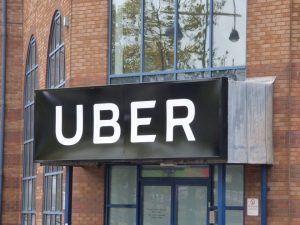- Have any questions?
- 888-432-8878
- steve@sebackground.com

3 Ways to Redefine Your Organization for a New Era
August 10, 2020Vacation Travel Policies May Need to Be Altered Due to Pandemic
August 11, 2020A California judge has ordered Uber and Lyft to reclassify their workers from independent contractors to employees with benefits in a landmark judgment that will affect gig workers and especially the ride-hailing service drivers.
Superior Court Judge Ethan Schulman has ruled that Lyft and Uber’s thousands of contract drivers should be given the same benefits under labor law as other full-time employees.
Schulman said the companies are giving circuitous reasoning for not giving the same benefits to their drivers as regular employees. “Were this reasoning to be accepted, the rapidly expanding majority of industries that rely heavily on technology could with impunity deprive legions of workers of the basic protections afforded to employees by state labor and employment laws,” Schulman wrote.
The judge also pulled up Uber and Lyft for not complying to a California Law, the Assembly Bill 5 Law, passed last year that required gig economy companies to give contractual workers health benefits and paid sick and family leave.

The judgment can be cited in future rulings for gig workers, giving them some protection of employment and rights to benefits.
“It bears emphasis that these harms are not mere abstractions; they represent real harms to real working people,” wrote Schulman, adding: “To state the obvious, drivers are central, not tangential, to Uber and Lyft’s entire ride-hailing business.”
Earlier, a series of lawsuits were filed by the California Attorney General Xavier Becerra saying that Uber and Lyft are misclassifying drivers as contracted workers for gains. Becerra called the judge’s preliminary order a victory for drivers.
“The court has weighed in and agreed: Uber and Lyft need to put a stop to unlawful misclassification of their drivers while our litigation continues,” Becerra said in a statement. “Our state and workers shouldn’t have to foot the bill when big businesses try to skip out on their responsibilities. We’re going to keep working to make sure Uber and Lyft play by the rules.”
The judge’s order does not take effect for 10 days. Both Uber and Lyft said they plan to appeal.
“The vast majority of drivers want to work independently, and we’ve already made significant changes to our app to ensure that remains the case under California law,” Uber spokesman Matt Kallman said. “When over 3 million Californians are without a job, our elected leaders should be focused on creating work, not trying to shut down an entire industry during an economic depression.”
In a statement, Lyft said: “Drivers do not want to be employees, full stop. We’ll immediately appeal this ruling and continue to fight for their independence. Ultimately, we believe this issue will be decided by California voters and that they will side with drivers.”
Uber and Lyft, are arguing that converting drivers to formal employees with benefits would force the companies to lay off drivers and result in higher prices for passengers. The pandemic has led to the ride-hailing business facing some tough times with no profits. Both the companies have turned to delivery services to tide over their losses.
In its earnings call Uber said its core business of picking and dropping people off has fallen nearly 75%. Uber has already laid off 23 percent of its workforce numbering more than 6,700. Lyft has let go of nearly 1,000 employees.
San Francisco City Attorney Dennis Herrera said in a statement Monday that drivers need additional protections, such as qualifying for unemployment benefits, now more than ever as the economic downturn leaves many workers especially vulnerable.
“These companies have pocketed millions of dollars by leaving taxpayers to foot the bill. That’s unacceptable,” Herrera said. “There is no rule that prevents these drivers from continuing to have all of the flexibility they currently enjoy. Being properly classified as an employee doesn’t change that.”
Gig workers are the worst hit in this pandemic and need some protection against bad economic times as they are basically freelancers with no contractual safety. The US government’s recent CARE Act covers gig economy workers for unemployment benefits, with some caveats.
Most gig economy workers are people of color and come from weak economic backgrounds. A recent survey in San Francisco found that 45 percent people employed in such contractual work were unable to afford $400 for any emergency.
The post California judge orders Uber, Lyft to reclassify drivers as regular employees appeared first on The HR Digest.
Source: New feed




